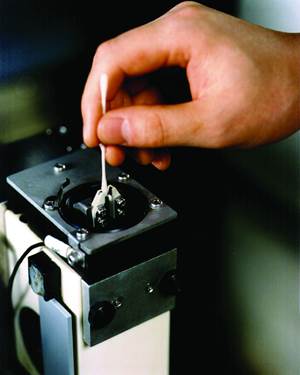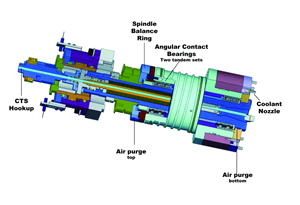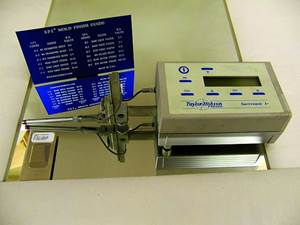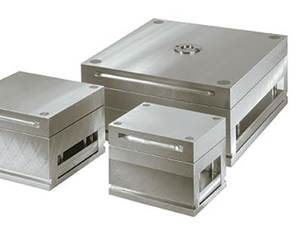Apprentice Training: Related Technical Instruction
Ryan Pohl presents a review of important classes for Related Technical Instruction (RTI) that will establish a robust apprenticeship program.
This month’s column marks the final article in the apprentice training series that MoldMaking Technology has presented throughout the past 12 months. Here I provide a summary of each class topic and review the importance of incorporating Related Technical Instruction (RTI) into a robust apprenticeship program. RTI is a required component of any apprenticeship that supplements on-the-job training.
Work ethic and attitude. First and foremost, every company should have a class that defines work ethic and attitude expectations for working within the company. This should not just be a discussion, but a formal class in which the student is expected to demonstrate his or her understanding of the concepts in a concrete and measurable way. It is likely that the company will have to design and deliver this class itself because it is hard to find this topic taught externally. It is worth investing in this specific soft-skills training. If shops do not get the work ethic and attitude right in the beginning, the rest of the apprenticeship will suffer.
Shop safety. As fewer and fewer people enter the trades through a high-school shop class, it becomes more important to incorporate a formal shop safety course on industry-specific safety rules. Many shop safety programs only cover general information that applies to the basic industrial environment. The class that a company chooses should include specific safety requirements for working with mills, lathes, grinders, drill presses, etc.
Manual machining. Perhaps the most controversial topic on this list is manual machining. As I stated in my September 2017 article, I have personally witnessed the significant difference in ability between machinists and moldmakers who have manual machining experience and those who do not. Perhaps it is anecdotal, but those who have significant manual machining experience almost always demonstrate a greater ability to problem-solve and innovate.
Inspection and measurement. Most apprentices possess the basic ability to effectively use micrometers and calipers by the end of a few months in the industry. However, precision measurement and inspection involve so much more. For example, a class on this topic could teach apprentices to properly calibrate every instrument, identify indirect measurement tools, understand tolerance, etc. Accuracy, precision and measurement are the foundations of this industry, so it is critical that apprentices receive an in-depth education on these topics.
Print reading. The foundations of every CAD or CAM software are found in an old-fashioned engineering drawing or print. The basics of visualization, views and nomenclature are taught through a good print-reading class. When an apprentice has learned how to use a two-dimensional print, his or her understanding of a three-dimensional environment will advance quickly.
Shop math. My April 2017 article mentioned the debate over the value of an in-depth shop math class for the trades today because of the heavy use of computers. The moldmaker and machinist of today do less applied math than their counterparts did 20 years ago. However, in my opinion, there is still value in learning shop math. If nothing else, there is value in learning the logical processes involved in mathematical problem-solving. Developing the ability to do basic math and enhance logical problem-solving abilities will always pay off in the long-run.
Metallurgy. Metallurgy is one of the most important classes an apprentice should take. It is also one of the classes that the industry overlooks the most. This is probably the case because many journeymen workers in the industry remember a tedious, boring class in which they spent too much time analyzing iron-carbon phase diagrams instead of learning the concepts that truly matter to a machinist. A metallurgy class should cover material processing, alloying, heat treatments, classifications and testing. Staying focused on the practical applications of metallurgy will pay significant long-term dividends to the skilled tradesman.
Moldmaking. Every apprenticeship in moldmaking should have formal moldmaking theory classes as part of the RTI. It can be difficult to find one of these classes at a community college because the content is so specific. However, industry consultants teach several programs that are available online. Additionally, moldmaking theory courses are a good set of classes to develop and teach internally, as there is so much science and engineering involved in designing and building a plastic injection mold, for example.
I have a few, final words of advice. Every company should take the time to research and establish a list of classes that works best for it. What I presented in this Skills Center column are only suggestions. The appropriate RTI for any apprenticeship program will clearly teach moldmaking skills and moldmaking knowledge. Too often, shops think that apprentices will learn everything they need for their careers exclusively on the shop floor. This may be the case for developing skills, but moldmaking is built on historical and current knowledge.
Without a proper understanding of the why, the next generation will lack the ability to problem-solve and innovate.
Simply put, skills cover the what and knowledge covers the why. More specifically, RTI covers the why. Without a proper understanding of the why, the next generation will lack the ability to problem-solve and innovate. This great industry demands a lot from each person in it, so every apprentice must be trained with a rigorous and deep RTI plan to meet those demands today and well into the future.
About the Contributor
Ryan Pohl
Ryan Pohl is founder of Praeco Skills LLC. He is also on the 2017 Editorial Advisory Board for MoldMaking Technology.
Related Content
Maintaining a Wire EDM Machine
To achieve the ultimate capability and level of productivity from your wire EDM on a consistent, repeatable and reliable basis, regular maintenance is a required task.
Read MoreMachining Center Spindles: What You Need to Know
Why and how to research spindle technology before purchasing a machining center.
Read MoreSurface Finish: Understanding Mold Surface Lingo
The correlation between the units of measure used to define mold surfaces is a commonly raised question. This article will lay these units of measure side by side in a conversion format so that companies can confidently understand with what they are dealing.
Read MoreConsiderations for Mold Base Material Selection
Choosing the right material can greatly affect the profitability and cost of your application.
Read MoreRead Next
Finding, Training & Retaining Employees
In this multi-part series of articles, contributor Ryan Pohl, a journeyman CNC machinist who also holds a master's degree in industrial training and development, addresses the skilled-labor shortage and its potential to dramatically hinder the future sustainability and growth of the moldmaking industry.
Read MoreAre You a Moldmaker Considering 3D Printing? Consider the 3D Printing Workshop at NPE2024
Presentations will cover 3D printing for mold tooling, material innovation, product development, bridge production and full-scale, high-volume additive manufacturing.
Read MoreReasons to Use Fiber Lasers for Mold Cleaning
Fiber lasers offer a simplicity, speed, control and portability, minimizing mold cleaning risks.
Read More








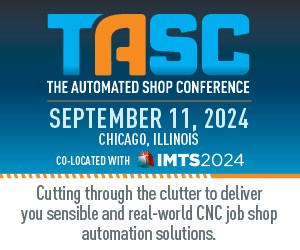





.png;maxWidth=300;quality=90)



